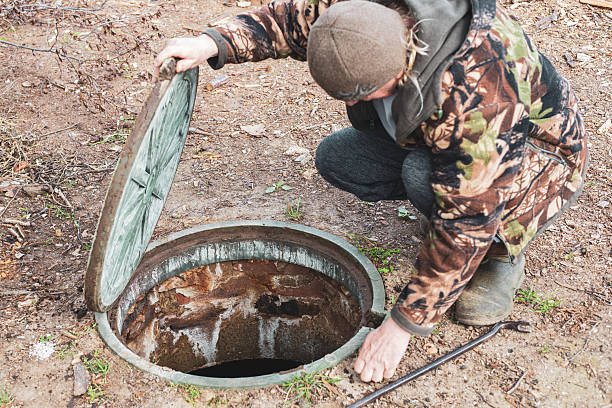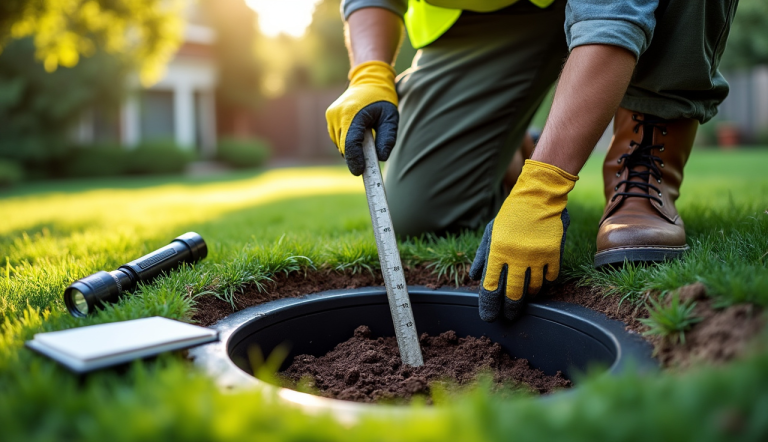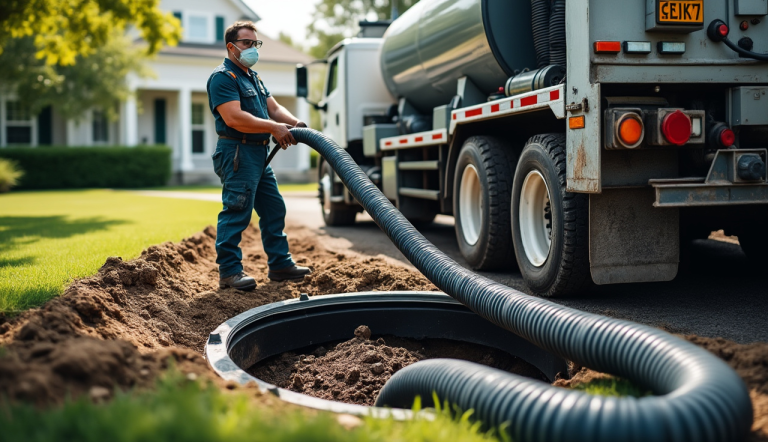What to Expect During a Septic System Inspection in Middletown, NY
When it comes to protecting your property and ensuring a safe environment, scheduling a septic system inspection in Middletown, NY is one of the most important steps homeowners can take. Whether you are maintaining your current system or preparing to purchase a home, professional septic inspections help prevent costly repairs, identify hidden problems, and ensure your system meets all local and state regulations.
At United Sewer & Septic, we know that many property owners feel uncertain about what happens during an inspection. This guide explains the full septic inspection process, why it matters, and what Middletown residents can expect when they schedule an appointment with our experienced team.
Why Septic System Inspections Are Important
A properly functioning septic system protects your home, your family, and the environment. Without regular inspections, small issues can go unnoticed and lead to system failures, groundwater contamination, or expensive repairs. A thorough septic system inspection in Middletown, NY ensures that all parts of the system are working efficiently and identifies any warning signs before they become major problems.
For those considering buying a home, home buying septic checks are essential. No one wants to move into a property only to discover that thousands of dollars in septic repairs are needed.
When Should You Schedule a Septic Inspection?
Most experts recommend scheduling septic system inspections every 3–5 years, or more frequently if your property experiences heavy usage. However, there are certain situations where inspections become even more critical:
- During a real estate transaction – Sellers and buyers should request a professional inspection to ensure system health.
- After major repairs or upgrades – A follow-up inspection verifies that the work was completed correctly.
- If you notice warning signs – Issues like slow drains, sewage odors, or pooling water can indicate underlying septic problems.
- For commercial properties – Restaurants and other facilities with higher wastewater output need inspections more often.
The Septic Inspection Process
A professional septic inspection process goes beyond a quick visual check. At United Sewer & Septic, we follow a detailed procedure that evaluates every aspect of the system.
Initial Consultation and Records Review
The inspector begins by discussing the property’s history, past maintenance records, and any current concerns. Reviewing the system’s age, tank size, and prior septic system inspections helps guide the evaluation.
This step ensures that the inspection is tailored to the unique needs of your property and identifies areas of potential concern early on.
Locating and Accessing the Septic Tank
The septic tank must be uncovered for a proper inspection. This step allows the technician to check the lid, tank structure, and access points. If risers are installed, this process is quicker and easier.
Proper access also ensures that inspectors can provide accurate results instead of relying on incomplete visual assessments.
Measuring Sludge and Scum Levels
Using specialized tools, inspectors measure the levels of solid waste and scum inside the tank. This determines whether septic tank pumping is necessary and evaluates how well the system is separating and processing waste.
Maintaining safe levels prevents backups and ensures the tank can operate efficiently.
Checking for Leaks and Structural Integrity
The inspector will carefully check for cracks, leaks, or water intrusion. A leaking septic tank can contaminate groundwater and create serious environmental hazards.
This part of the inspection helps confirm that your system is structurally sound and safe for continued use.
Evaluating the Drainfield
The drainfield is a critical part of the system, dispersing wastewater safely into the soil. Inspectors check for signs of pooling water, soggy ground, or sewage odors—all of which can signal drainfield failure.
Healthy drainfields are essential for long-term septic system health, making this step one of the most important parts of the process.
Sewer Camera Inspection Services
In some cases, inspectors use sewer camera inspection services to get a detailed view of the system’s condition. Cameras can detect blockages, pipe cracks, and root intrusion that might otherwise go unnoticed.
This technology provides peace of mind by giving property owners visual proof of the system’s health.
Types of Septic System Inspections
Not all inspections are the same. The right approach depends on the reason for the evaluation.
Routine Maintenance Inspections
These are performed as part of regular septic maintenance. They help property owners catch minor issues before they escalate and ensure compliance with pumping schedules.
Routine inspections typically include tank evaluations, sludge measurements, and drainfield checks.
Home Buying Septic Checks
For buyers, home buying septic checks provide crucial information before finalizing a sale. These inspections are often more detailed and include water usage evaluations to ensure the system can handle household demand.
Investing in an inspection before closing protects against unexpected repair costs.
PSMA Certified Inspections
In some cases, property owners may request PSMA certified inspections. These inspections follow strict industry standards to ensure accuracy and compliance.
PSMA certification gives homeowners and buyers confidence that their system has been thoroughly and professionally evaluated.
How Long Does a Septic Inspection Take?
Most septic system inspections in Middletown, NY take between 1–3 hours, depending on the size of the property and the complexity of the system. More detailed evaluations, such as those involving sewer camera inspection services, may take longer.
Your inspector will provide an estimated timeframe during the initial consultation.
Benefits of Regular Septic Inspections
Investing in regular Orange County septic evaluations offers multiple benefits:
- Extends the life of your septic system
- Helps prevent costly emergency repairs
- Protects groundwater and the environment
- Ensures compliance with local health regulations
- Provides peace of mind for homeowners and buyers
Regular evaluations are one of the most effective ways to maintain septic system health for years to come.
Choosing a Reliable Septic Inspection Company
When it comes to septic inspections, experience and trust matter. At United Sewer & Septic, our team has years of expertise serving homeowners across Orange County. From septic tank inspection to advanced camera technology, we provide the comprehensive services needed to keep your system in top condition.
By choosing local professionals, you gain the advantage of timely service, knowledge of regional soil conditions, and compliance with New York state regulations.
Final Thoughts
Scheduling a septic system inspection in Middletown, NY is one of the most effective ways to protect your property investment and safeguard your family’s health. With a clear understanding of the septic inspection process, property owners can feel confident in maintaining system performance for years to come.
Trust United Sewer & Septic for reliable, affordable, and professional septic inspection services across Orange County.
FAQs
How often should I schedule a septic system inspection in Middletown, NY?
Most systems should be inspected every 3–5 years, but high-use properties may require more frequent evaluations.
What is included in the septic inspection process?
A typical inspection includes tank evaluation, sludge level measurement, drainfield checks, and in some cases, sewer camera inspection services.
Do I need an inspection before buying a home?
Yes. Home buying septic checks help ensure that the system is in good condition and save you from unexpected repair costs.
What is a PSMA certified inspection?
This is a professional inspection that follows strict industry standards for accuracy and reliability.
How do I know if my septic tank needs pumping?
An inspection will determine sludge and scum levels. If they are too high, septic tank pumping will be recommended.




